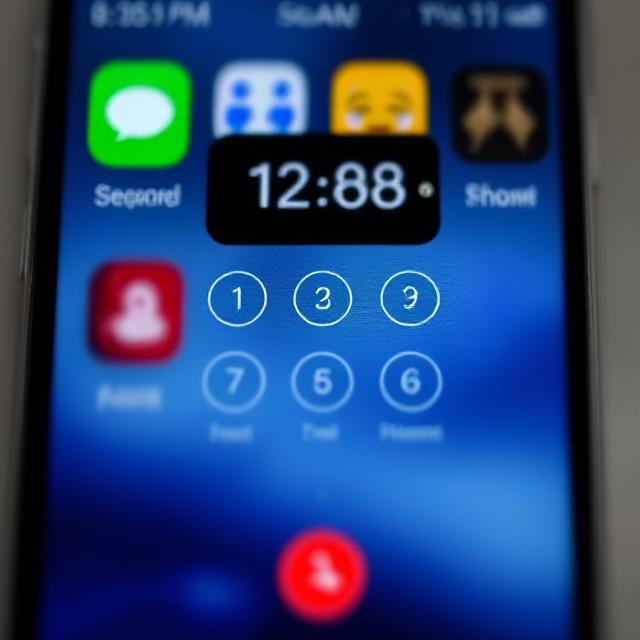Should I Answer Unknown Calls? A 2025 Guide for Professionals
Worried about scam calls in 2025? Discover why most unknown calls are dangerous, and how Clayo.ai uses AI to screen and protect your calls.
June 16, 2025
5 min read

You’re working on something big.
Maybe you’re preparing for a pitch, deep in a content sprint, or simply in the middle of a long-overdue strategy block.
And then—buzz buzz.
Unknown number.
You pause.
It could be a potential client, an investor, or a journalist reaching out for a quote.
It could also be another scammer asking you to “verify your PAN card” or pay ₹50 to release your package.
So, you ask yourself the modern question we all face:
“Should I answer unknown calls in 2025?”
Let’s break it down—logically, statistically, and with some hard-earned founder wisdom.
☎️ The New Reality of Unknown Numbers
Gone are the days when unknown calls meant a real person with real purpose.
In 2025, most unknown calls are:
- Robocalls pretending to be banks or utilities
- Deepfake AI voices mimicking people you know
- Sales spam from aggressive bots
- Scam calls designed to extract personal data
According to Hiya’s Voice Threat Report, one in four unknown calls is now a scam. And Truecaller reports 17–20 such calls per user per month in India alone.
That means answering unknown calls is more dangerous than useful—especially if you’re a public-facing founder or creator.
⚠️ Risks of Answering Unknown Calls
If you still pick up every call hoping it’s important, here’s what you’re exposing yourself to:
1. Voice Cloning & Deepfakes
Scammers can record your voice during the call and use it to authorize financial transactions or clone your voice using AI tools.
2. Phishing Traps
They pretend to be from a delivery service or government agency and pressure you into sharing OTPs or payment info.
3. Behavioral Tagging
Even saying “hello” can tag your number as active—triggering even more spam in the future.
4. AI-Generated Calls That Sound Real
Some scammers are now using AI-generated responses that adapt based on your tone and replies. These aren’t simple robocalls. They’re manipulative, convincing, and dangerous.
🧠 Why Founders and Professionals Are Prime Targets
If you’re a decision-maker, your number is likely already on several databases:
- Pitch decks
- Event sign-up forms
- CRM exports
- B2B directories
Scammers know you’re busy, mobile-first, and in high-stakes conversations often.
They use this urgency to their advantage, calling with vague but alarming messages:
“Your card was used for an international transaction. Press 1 to verify.”
“Your tax refund is pending. Please confirm your identity.”
“I’m from your bank’s fraud team. Can you verify your card number?”
The more pressure they create, the more likely you’ll fall into reactive mode.
🛑 So, Should You Answer Unknown Calls?
Short answer: No.
Smarter answer: Only if it’s screened first.
In 2025, answering unknown calls without a filter is like letting random strangers walk into your office during investor meetings.
You don’t need to take every call. You need a system that lets you know which calls actually matter.
✅ How to Handle Unknown Calls Like a Pro
Here’s the simple, founder-tested system that works:
1. Let AI Take the First Call
Instead of answering yourself, use Clayo.ai to screen it.
Clayo:
- Answers unknown numbers for you
- Asks the caller their purpose
- Detects scam patterns or robocalls
- Summarizes the call in real time
- Only forwards what’s urgent and real
You stay focused—and informed—without ever picking up junk.
2. Set Expectations
Update your voicemail and email signature to say:
“Unknown numbers are screened. For urgent matters, please text your name and reason.”
This builds boundaries—and teaches people to respect them.
3. Use DND + Smart Filtering
Combine call screening with “Do Not Disturb” or Focus Mode during your deep work blocks. This shields you from distractions while still letting important filtered calls get through.
4. Never Share Sensitive Info
Even if the caller sounds familiar or urgent, never share OTPs, card details, or passwords over the phone. Real institutions will never ask for them like that.
🔐 Unknown Caller Safety Tips
In case you do answer a suspicious call:
- Ask who’s calling and say you’ll call them back via an official number.
- Avoid saying “yes” or any affirming phrases.
- Hang up immediately if anything feels off.
- Google the number or search it on Truecaller or Clayo’s call log to verify.
If the call is legit, the person will follow up via email or SMS.
If it’s fake, they’ll vanish—and you just saved yourself a headache.
📲 Why I Use Clayo.ai to Handle All Unknown Calls
I used to let unknown calls go to voicemail.
But I still wondered:
- “Was that someone important?”
- “Did I just miss a client or investor?”
And if I did answer, I’d either:
- Waste time on spam
- Get interrupted during a focus block
- Or worse—almost fall for well-crafted AI scams
Then I installed Clayo.ai, and everything changed.
It became my AI receptionist. Now I don’t answer unknown calls—Clayo does. It screens them, understands intent, and sends me a summary. I only engage when it’s worth my attention.
No guilt. No anxiety. No lost leads.
🧘 What Happens When You Stop Answering Unknown Calls
- You protect your flow during deep work.
- You stop being reactive to every ring and buzz.
- You train your network to respect boundaries.
- You remove fear and urgency from your day.
Instead of chasing every possibility, you let clarity filter the noise.
And that’s what every founder needs more of.
💡 Final Word: Your Time Deserves Protection
You don’t answer every door knock.
You don’t reply to every cold email.
So why answer every unknown call?
In 2025, unknown calls are a productivity trap—and a potential security threat.
Clayo.ai gives you a smarter way forward. It doesn’t just block or label calls. It understands them, filters them, and helps you make better decisions—without interruptions.
📱 Click here to try Clayo.ai — and never waste focus on unknown calls again.
👉 Try it now at Clayo.ai
